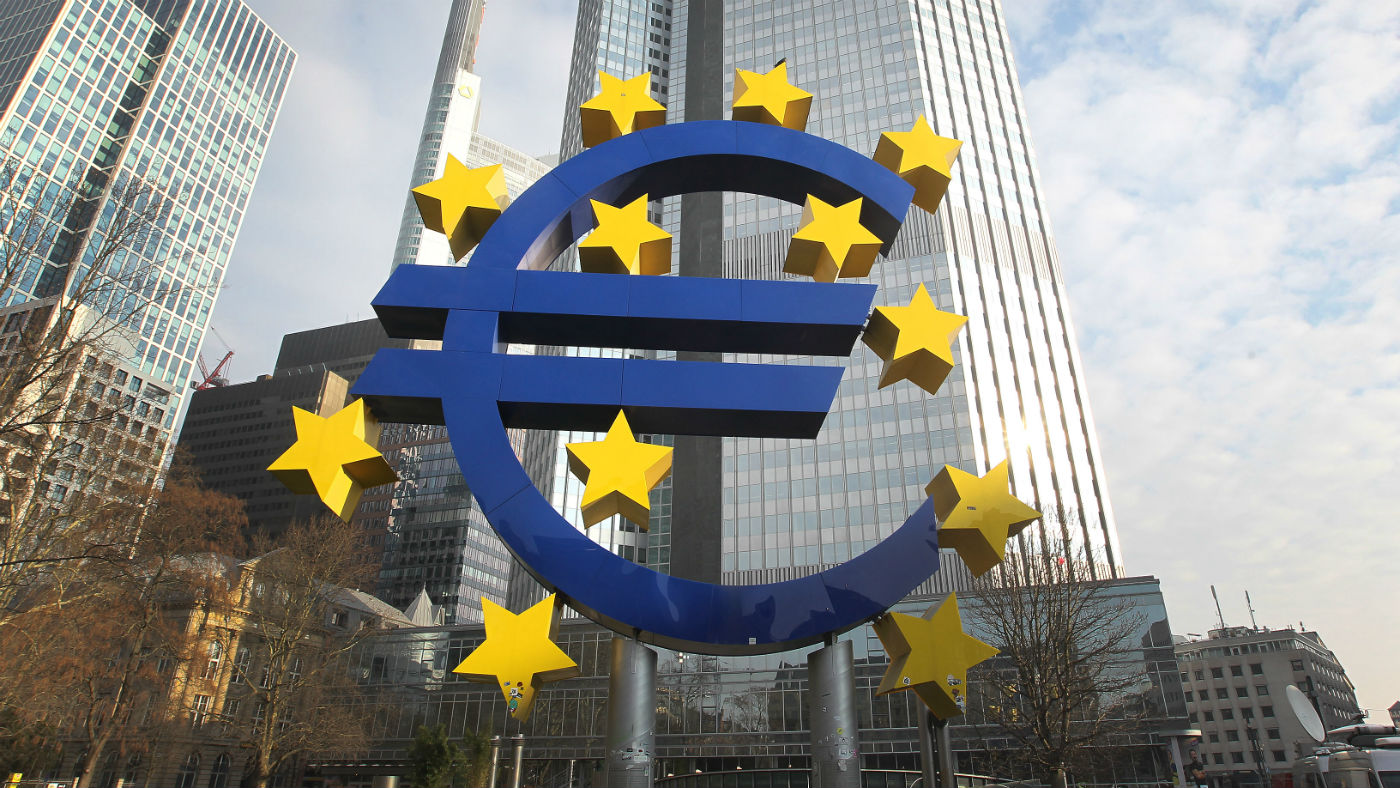ECB to end stimulus programme by year’s end
European central bank to ease back on quantitative easing measures but continue to keep rates

A free daily email with the biggest news stories of the day – and the best features from TheWeek.com
You are now subscribed
Your newsletter sign-up was successful
The European Central Bank will phase out its massive bond-buying programme, which has been propping up the eurozone economy since the credit crunch, by the end of the year.
Despite warning that the single currency area was going through a soft patch at a time when protectionist risks were rising, ECB President Mario Draghi said it will cut quantitative easing from €30bn per month now to €15bn a month in September. It will come to a full stop in December.
The move “is a major step towards dismantling the policies brought in to stabilise the eurozone in the wake of the financial crisis” says the BBC.
The Week
Escape your echo chamber. Get the facts behind the news, plus analysis from multiple perspectives.

Sign up for The Week's Free Newsletters
From our morning news briefing to a weekly Good News Newsletter, get the best of The Week delivered directly to your inbox.
From our morning news briefing to a weekly Good News Newsletter, get the best of The Week delivered directly to your inbox.
It brings to an end the ECB’s €2.4 trillion (£2.1 trillion) asset-purchase programme introduced in March 2015 to avert the threat of deflation in the eurozone.
The decision represents a belief in the central bank that the eurozone economy, after years of weakness and recession, “is now sufficiently robust that it can start to withdraw monetary stimulus” says The Independent.
Signalling that the move would not mean rapid policy tightening in the coming months, the bank also said that interest rates would stay at record lows at least through the summer of 2019, “suggesting protracted support for the economy, even if at a lower level”, says Reuters.
The Guardian says the ECB’s statement “reflected the battle between hawks and doves on the bank’s council, with the decision on QE matched by a softening of its approach to interest rates”.
A free daily email with the biggest news stories of the day – and the best features from TheWeek.com
It does, however, signal the beginning of the end for easy money from the world’s top central banks, with the US Federal Reserve dropping a major crisis-era stimulus pledge earlier this week.
BBC economics correspondent, Andrew Walker, described the move as “an important moment”.
“It reflects the fact that the Eurozone recovery appears well established - though it has cooled somewhat this year,” he said.